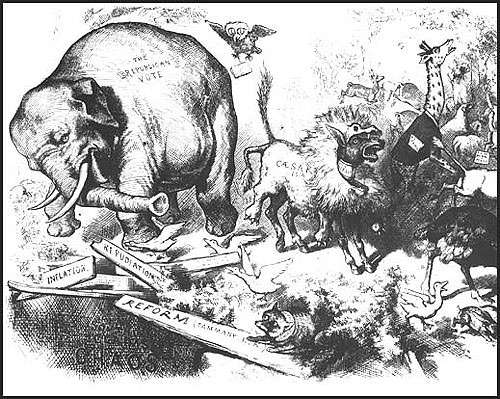Making Sense of the Modern Republican Party
The internal dynamics of the GOP.
Timothy Carney's new column looks at the GOP's internal dynamics. Here's his starting point:

To understand the Republican leadership vacuum, consider what's different today compared to five years ago.
The 2010 Citizens United ruling has spawned SuperPACs that offset the power of the political parties and K Street. The Republican earmark ban has taken away a vote-whipping tool. The Internet's advances have turned the grassroots into kudzu vines. The committee process has grown feeble. And all of these changes have injected an antiestablishment fervor into the GOP base.
Carney argues that Ted Cruz and Jim DeMint are better at operating in this environment than the party's nominal leaders are, but that their approach won't work in the long term. The whole thing is worth a read. And after you read it, as you consider Carney's argument, you might mull Ben Domenech's speculation that the man best poised to benefit from Cruz's recent activities is Rand Paul, who still looks like a leader of the party's anti-establishment wing but isn't burning the bridges that Cruz just set aflame.


Show Comments (307)